Yesterday afternoon we walked down to the falls. On the way, we stopped at the stone bench. We watched the river and played with pine needles. Suddenly, Iris pointed to my shoulder— “That!” — a tiny earwig was frantically wondering where on earth it was.
“A bug,” I said. I let it run around on my hands for a while. Earwigs are quick, and it soon made its way back to the forest floor.
“Go?” said Iris, wondering where it went. We didn’t find it.
On our way back from the falls, Iris said, “Bugs.”
“You want to look for bugs?” I asked. She nodded. So we went over to the slope where there were a bunch of dead leaves and began to scrape around. Eventually I came up with a tiny baby worm. Worms are easier to hold than earwigs and centipedes, which run off. They are more interesting than millipedes, which play dead. They don’t bite, they don’t squish easily, and they don’t panic. Worms are perfect. Iris played with the worm.
“Neck?” she asked.
“Does the worm have a neck?” I repeated; “I don’t know.”
“Done!” she declared after a short while.
“You’re done with the worm?” I asked.
“Done,” she said. We put the worm back down then— “more.”
“You want another worm?” I asked.
“Yes,” she said.
I looked for more worms. “This would be easier with a shovel,” I said, then handed her another worm.
“Shovel,” she agreed.
Eventually I convinced her to go home, where we could use the new shovel that Joshua gave her for her birthday to search for worms.
The worm hunt did not go so well. My yard is a bog. I chose an area low on worms with ice not too far from the surface.
“The worms do not like this weather,” I explained. “They are still sleeping.”
“Sleeping,” she agreed, and patted the soil. Then— “Worms!”
After finding one half-frozen lethargic worm, Iris reluctantly came inside for dinner.
This afternoon I spent some time clearing weeds from the garden. The garden is prime worm territory. Between weeds, I helped Iris hunt for worms.
“Neck?” she asked.
“Does the worm have a neck?” I repeated. “I don’t know.”
Iris looked closely for a while than said, “Done.”
“When you’re done with the worm, you can put it on the ground. A worm will always find its way home in the soil.”
She put the worm down.
Eventually she became more self-sufficient about finding worms.
“Worm!” she announced.
“You found a worm?” I asked.
“Iris find a worm,” she said. Four words strung together! A new record! I went to look.
“Neck,” said Iris.
“Does the worm have a neck?” I said.
“Neck,” she repeated, affirmatively. Then, “Nose.”
“The worm has a nose?” I said.
She nodded. “Ears.”
“And ears?” I tried to picture worm ears.
“Two,” said, as if having counted.
“What else does a worm have?” I asked.
“Feet,” said Iris.
“A worm has feet?” I asked, incredulously.
Silence.
“Done!” said Iris, and put the worm down— “home.” She watched it for a few seconds. “Sleep,” she said, making gentle patting motions with her hand.
In this photo, Iris is looking at worms through a magnifying table
to help better discern their anatomy.
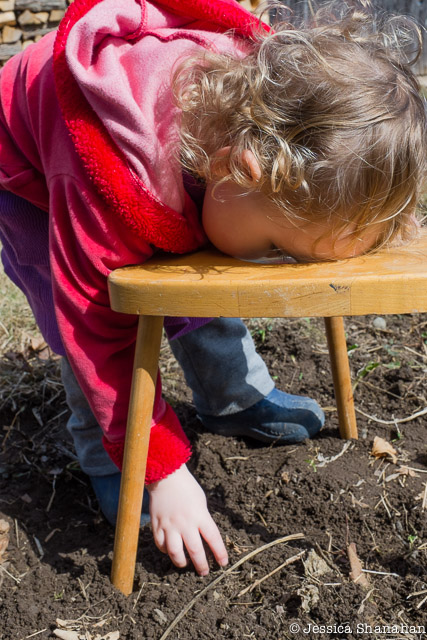
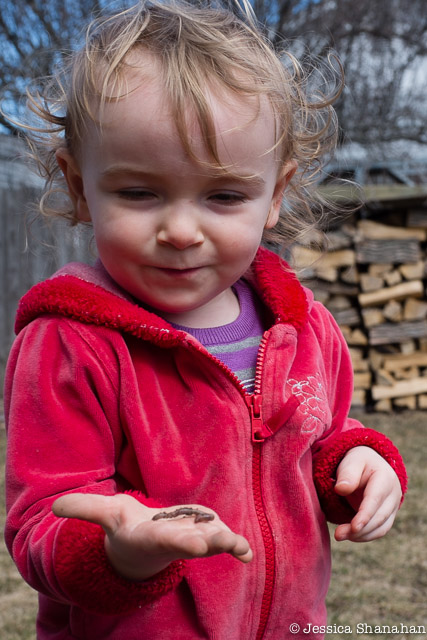
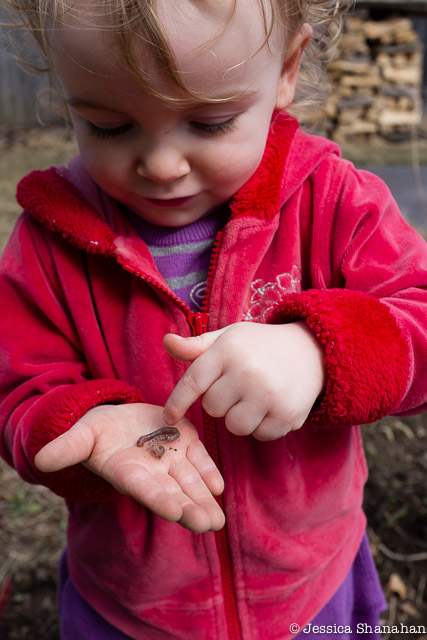
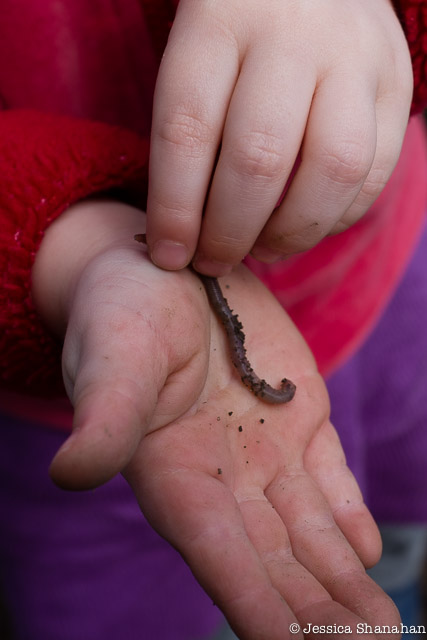
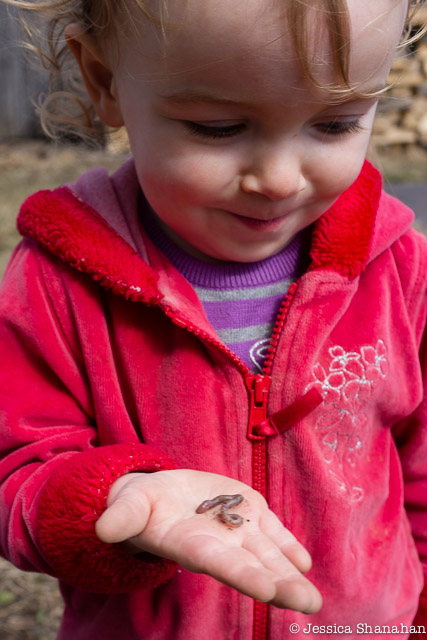




When my children ask for another pet…I always let them know that composting worms are the ultimate pet. Then they glare at me.
Hmph. What ingrates! 😉 …but maybe if you got a dissecting scope (fun!), they’d learn to appreciate their decomposing friends. In the first photo, Iris is looking through a large magnifying glass.
J’aime beaucoup voir Iris la façon de découvrir c’est quoi un ver de terre. C’est vraiment mignon. Quelle belle manière d’apprendre. C’est mieux utiliser un livre. Le concret vaut mille mots.